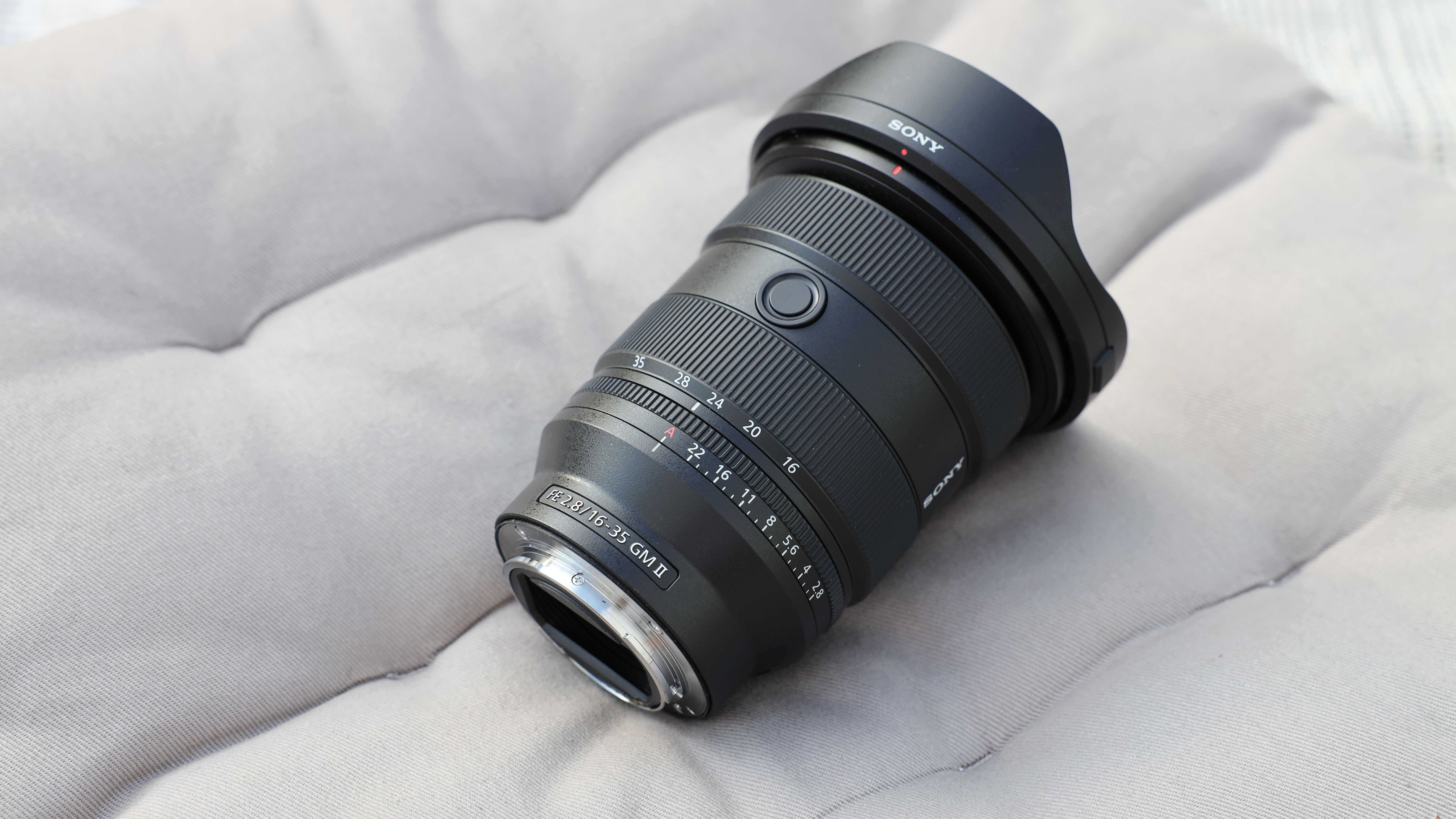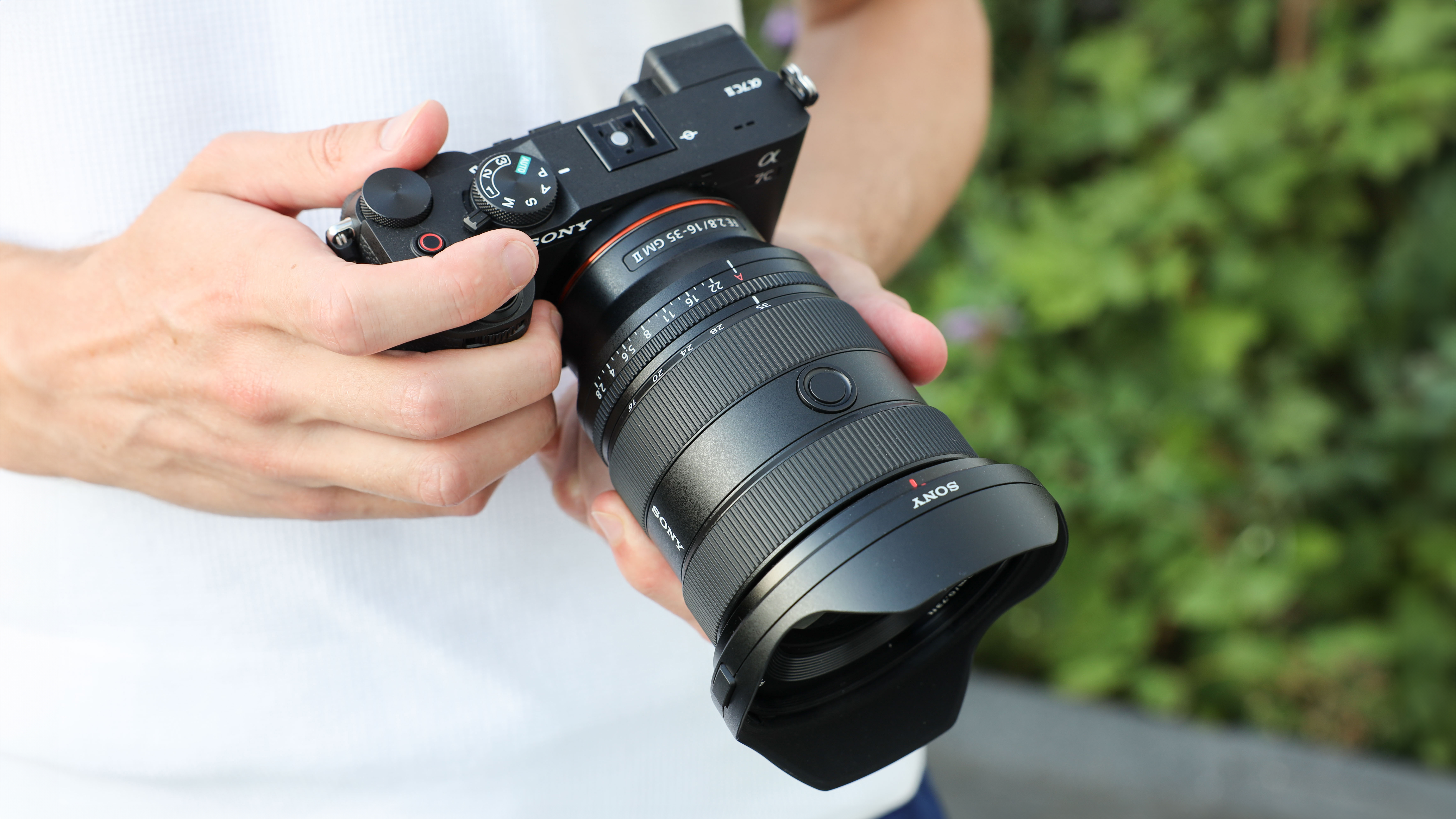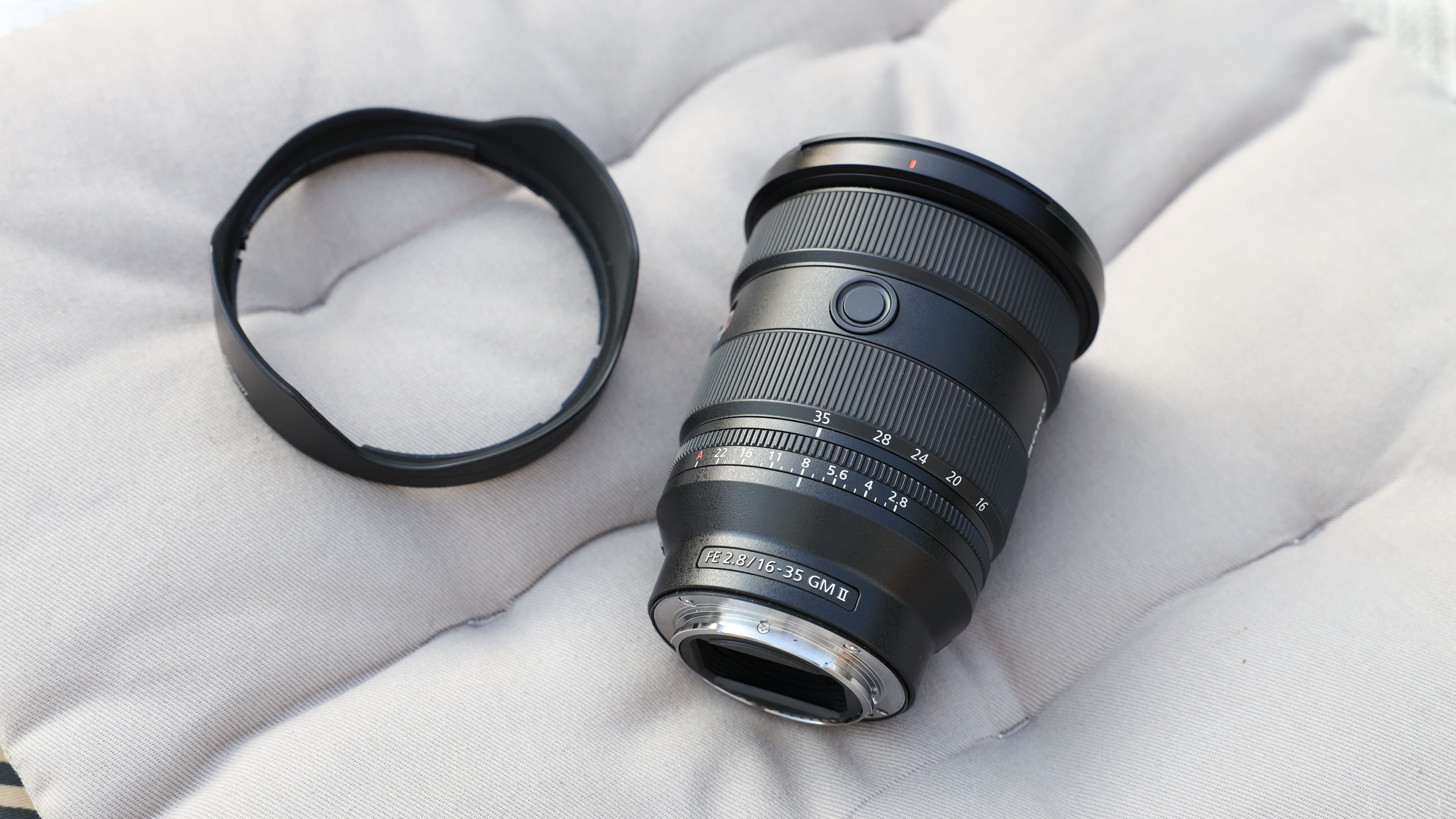
Sony has now completed the second generation of its holy trinity of lenses with the introduction of the wide-angle zoom lens – the Sony FE 16-35mm f/2.8 GM II.
Following on from the Sony FE 24-70mm F/2.8 GM II in April 2022 and the Sony FE 70-200mm f2.8 G Master OSS II in the final months of 2021, Sony has now updated its three professional lenses to take advantage of its latest sensors and their ever-increasing megapixels.
The holy trinity of lenses is the three zoom lenses that are generally considered to be the three lenses to own if you are a rounded professional photographer. Packing wide f/2.8 apertures and pro build quality, these lenses cover everything from 16mm all the way up to 200mm you can shoot everything from landscapes to portraits to wildlife and sports with minimal lens switching.

The Sony FE 16-35mm f/2.8 GM II is Sony’s smallest and lightest G-Master zoom lens to date, although still don’t expect this lens to be pocketable with the lens measuring in at 111.5mm in length and 547g. This is significantly smaller and lighter than the previous generation, however, shaving 10.1mm off the length and 133g from the weight. When the entire holy trinity is taken into account, all three lenses are a massive 759g lighter than the first generation, which is coincidentally the weight of a Sony A1 camera.
The lens doesn’t compromise on build quality though, with a dust and moisture-resistant construction, fluorine coatings, and a new lens hood design. The lens also has a manual aperture selection, that can be clicked or declicked as well as locked, as well as two focus hold buttons on the lens. Interestingly for video shooters, the lens is perfectly balanced so when the focal length is changed the center of gravity remains the same, which can save a lot of careful gimbal calibration.

The lens has a brand new optical design, made up of 15 elements in 12 groups, these include one aspherical, one Super ED, three XA, one ED Aspherical, and two ED elements, and the lens uses an internal floating focus. But what does this all mean? Well, Sony claims that this lens will produce much better corner resolution than the previous generation, along with less chromatic aberration, flare, and ghosting. It also allows for a closer working distance of just 0.22m.
Focus has also been improved over the original with four XD focusing motors. Sony says this lens has been designed to keep up with up to 30fps with autofocus and autoexposure as well as 4K/120p on its latest cameras, as well as the latest in focus breathing suppression.
The lens will be available in September but is able to be pre-ordered, the lens will cost $2,299 / £2,400 / AU$3,999, which is a relatively small $100/£100 bump from the first generation in the US and UK, but a significant hike from the AU$2,799 street price in Australia of the original optic.







